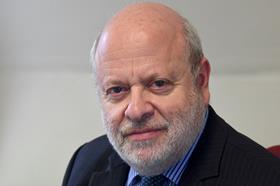The theme of this piece is the ‘golden mean’, the famous idea of Aristotle’s that virtue is the desirable midpoint between two extremes.

We are in a state of transition in terms of both climate awareness and technological possibilities. The two extremes in this case are between conducting all our business online, as we were forced to do during the pandemic, on the one hand; or travelling everywhere for meetings, training events and conferences, as we mostly did pre-pandemic, apart from a few telephone conferences.
We know – or at any rate, I know – that conducting everything online is less efficient and less healthy. These are clichés now, but the opportunity to network in person and exchange information in the spaces around more formal meetings helps our business. And there is something in humans, or at any rate in this human, which needs to be close to other humans, increasing mental health and productivity as a result.
Yet modern travel, which can achieve that, damages the climate.
For instance, the Council of Bars and Law Societies of Europe (CCBE) now publishes its carbon footprint online. It has a small secretariat and presidency, with offices based in Brussels. But, being Europe-wide, its personnel needs to travel to meetings and events around the continent, and most destinations are not easily reachable other than by air. Over half its carbon dioxide emission sources in 2023 were from air travel. That accounts for emissions only from its own staff and presidency. If the emissions of its delegations’ travel to CCBE meetings were included, which are much more difficult to calculate, the impact on emissions would be a great deal higher.
To its credit, the CCBE both publishes the data, and holds all, or nearly all, of its own meetings in a hybrid manner, allowing people to choose how to participate.
Of course, online participation is not itself cost-free in terms of the environment because of a range of issues, for instance the growing e-waste problem, technology-driven electricity demand (in making devices, powering them, powering data storage and streaming, bitcoin mining, so that the digital carbon footprint is currently increasing at 8% each year).
The Law Society has, since November last year, committed to being net zero by 2030. Its task is easier, because it is a domestic organisation with the majority of its work and members being a train journey away. Yet, as a result of the international interests and success of the large City firms, and because part of domestic success relies on being linked up to international organisations, there is also necessary international travel, in terms of opening markets for solicitors and keeping in touch with international colleagues to promote the solicitors’ profession. But the Law Society has one additional special difficulty: its headquarters in Chancery Lane is an old listed building, known to be usually difficult to make climate-efficient.
The organisations with the biggest challenges are those which are global, like the International Bar Association. It has done a good deal of work in helping bars and lawyers face the climate challenge. It issued a climate crisis statement in 2020 urging lawyers to become climate conscious in a variety of ways. It has recently launched a climate registry, where you can find the climate initiatives of bars from around the world, including our own Law Society, so that organisations learn from each other.
But, and I may be wrong here, I have found nothing addressed to its own actions as an organisation, to mirror its advice to its members to ‘reduce their environmental footprint through awareness of the impact of everyday actions’. Its business model depends on attendance in person of thousands of lawyers at venues around the world, like its annual conference this year in Mexico City. Registration details for the conference say nothing about online participation, and so I assume it is excluded.
Clearly, one of the big opportunities that the IBA annual conference offers is in-person networking with lawyers from around the world, including lawyers that you have never met before. That cannot be replicated online. (However, the networking offer does not come cheaply in finance, let alone climate, terms: numerous firms register one lawyer, and send along multiple others for the parties and networking opportunities, because the registration fees are high (around US$ 3,000 for Mexico City), not forgetting travel, hotel and subsistence costs on top.)
I said at the start that we are in a transition, and that this is about the golden mean. In other words, at the risk of stating the obvious, we should, in my view, not be conducting all our business online nor doing it all in person. It is our duty to pick and choose, balancing efficiency and health with climate consciousness – and, in my view, all organisations should offer us the choice, by enabling hybrid participation on all occasions.
Jonathan Goldsmith is Law Society Council member for EU & International, chair of the Law Society’s Policy & Regulatory Affairs Committee and a member of its board. All views expressed are personal and are not made in his capacity as a Law Society Council member, nor on behalf of the Law Society
































3 Readers' comments